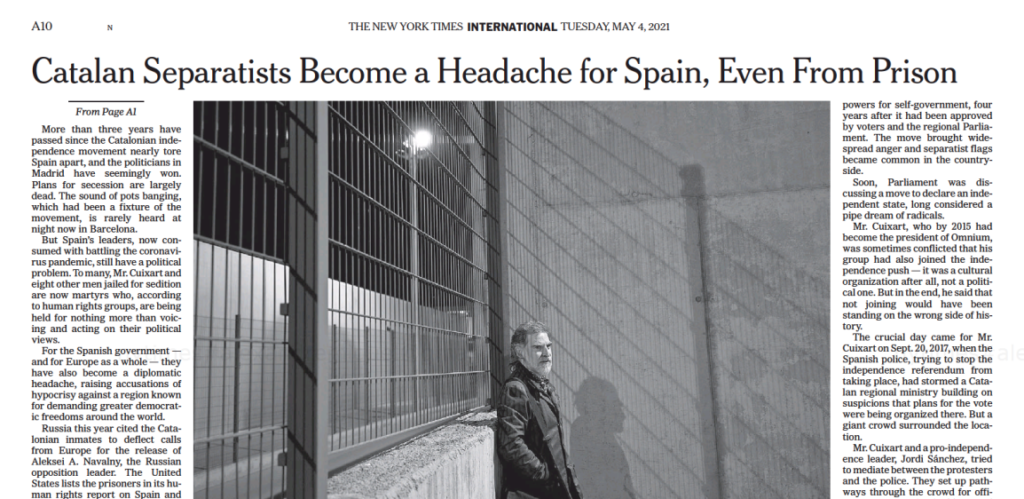05.05.2021 - 11:11
|
Actualització: 05.05.2021 - 13:11
Catalan activist and political prisoner Jordi Cuixart has said in an interview with the New York Times that Spanish authorities “want to change the ideals” of those prosecuted for defending and organising an independence referendum in 2017. However, Cuixart has repeated many times that he won’t change them, as he has no regrets about his democratic commitment and he would “do it again”.
“In the eyes of many foreign countries, he is a political prisoner sitting in the heart of Europe”, although Spanish authorities consider him a “dangerous criminal”, states the New York Times. Speaking from the Lledoners penitentiary, where he’s serving a 9-year sentence, Cuixart says: “At some point, Spain is going to have to reflect and ask themselves: What are they going to do with me? Eliminate me? They can’t.”
Cuixart is the president of Òmnium Cultural, an organization promoting Catalan language and literature, which over the past decade has become one of the biggest grassroots groups pushing for independence from Spain. The article, published on the front page of Tuesday’s paper edition, ran with the headline ‘Catalan Separatists Become a Headache for Spain, Even From Prison’ and explores the political dilemma of keeping people convicted of sedition in prison, while human rights groups say that they are being held for voicing and acting on their political views.
Diplomatic headache
“For the Spanish government — and for Europe as a whole — they have also become a diplomatic headache, raising accusations of hypocrisy against a region known for demanding greater democratic freedoms around the world” reads the article. The text goes on to mention Russia’s references to the imprisonment of pro-independence leaders to deflect calls from Europe for the release of opposition leader Aleksei A. Navalny, and the United States listing Cuixart and his jailed colleagues in its human rights report on Spain, calling their detention a form of political intimidation.
The reporter also spoke with voices critical of Cuixart and the independence movement, such as Spain’s foreign minister, Arancha González Laya, who says the situation in Catalonia brought painful memories of other independence movements, like the killings by the Basque terrorist group ETA. “They aren’t political prisoners. These are politicians that have broken the law,” says González Laya. “The question is, do you have the ability to express a different opinion in Spain? Answer: Yes. Do you have the right to unilaterally decide that you break up the country? No”, she concludes.


